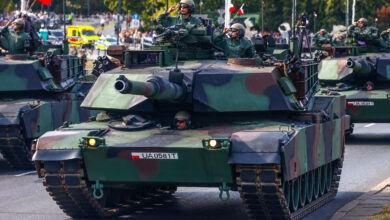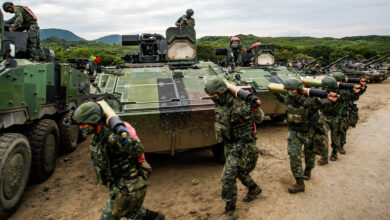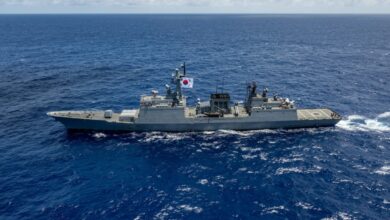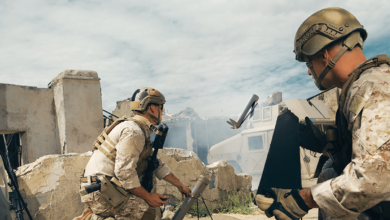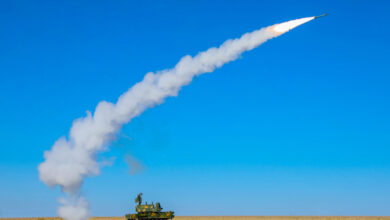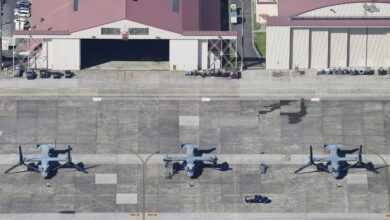Corps General: Marines Must Shed Mistrust of AI
“In some instances today, I would offer we don’t trust the machine,” Gen. David Berger said.
Marines need to shed their mistrust of unmanned and artificial intelligence (AI) systems in order to stay ahead of China’s growing military capabilities, said the force’s top officer Gen. David Berger.
Speaking at a conference earlier this week, the Commandant of the Marine Corps emphasized the need for increased use of unmanned systems to quicken the force’s reaction time through an AI-enabled, shorter sensor-to-shooter loop.
“In the same way that a squad leader has to trust his or her Marines, the squad leader’s going to have to learn to trust the machine,” Berger said, USNI News reported. “In some instances today, I would offer we don’t trust the machine,” he added.
Need Faster Sensor-to-Shooter Loop
Berger further explained how, despite having capabilities “that allow for fully automatic processing of sensor-to-shooter targeting,” the force’s reluctance to fully adopt such technology is holding it back from attaining the optimum speed and perfection possible to execute a mission.
“We have programs … but we don’t trust the data. And we still ensure that there’s human intervention at every [step in the process],” he said. And, with each intervention by humans, Berger said, “we’re adding more time” and “more opportunities for mistakes to happen.” This is time the corps won’t have when an adversary is targeting its network, he continued.
Berger appealed to industry to develop technologies that Marines can not just train with it, but trust as well.
Attendant Risks
The general then referred to Amazon’s AI-driven “logistics laydown” and distribution centers, and wondered if something similar could be applied to the force’s “expeditionary basing operations.”
While endorsing the idea of having an AI-driven distribution network that makes decisions in real-time for the troops, Berger also acknowledged the attendant risks in a contested environment where adversaries can sabotage network infrastructure.
Envisioning a worst-case scenario, Berger advocates building a resilient and interoperable command and control architecture whose infrastructure “would have to have an AI foundation so it can adapt organically if the adversary takes out a communications node and still get the right information to the right end-user.”
Lastly, he pointed out that the trust issue is not limited to the force, as even legislative bodies need more convincing to loosen their purse strings for projects they are currently reluctant to support.
Industry Needs to Work Closer With Corps
He also urged the industry to move apace with the force and work in close proximity to have a better understanding of its requirements.
“We lost time in development and experimentation due to lack of funding for some long-range precision fires capabilities because of trust.”
Berger took the blame, saying he has “to do a better job with a key to members on the Hill to reassure them that this is the necessary direction for the future of the Marine Corps. In some cases, they believe we’re moving too fast,” he said.
“In the meantime, I’m asking industry to innovate at speed with us, produce at scale alongside us, iterate from the lessons learned that we have in wargaming and experimentation, all in a fiscally constrained environment.”



